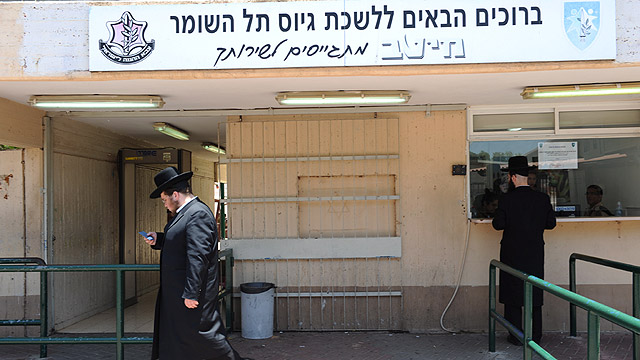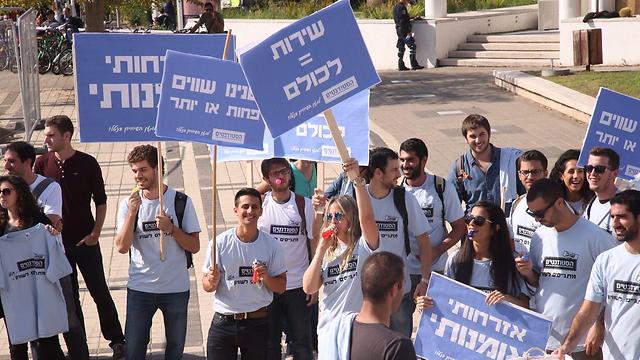

Legal bodies: New recruitment law will bring problems
Legal advisor to the Defense and Foreign Affairs Committee, Attorney Miri Frenkel-Shor, publishes an opinion ahead of Thursday’s vote to change the IDF ‘Equal Burden’ act saying there is ‘no justification for extending the acclimatization period.’
Shor specifically referred to one of the clauses due to be amended, known as the “adjustment period.” The clause relates to the period of time the government has in which to implement the new law, which had previously stood at three years.
The amendment would extend this period to six years, giving the government until 2020 to implement the new law. Shor pointed out to members of the Defense and Foreign Affairs Committee, which will be voting on the law, that the amendment in practice extends the adjustment period to nine years.
“There will be an additional adjustment period between 2020 and 2030,” Shor wrote. “The arrangement proposed in the bill does not set out instructions regarding their nature and character after 2023.
“The goal of this extension was to allow for a longer trial period and to sustain the recruitment process, as well as consolidating means that would assist with advancing the integration of ultra-Orthodox into regular service and national-civilian service,” Shor continued.
“This will cause a number difficulties and there is no justification for the extension.”
Shor also mentioned the change to the law itself, according to which the government will set out the law's aims according to the recommendations of the defense minister.
Shor wrote that the defense minister would be required to meet the targets that he himself had recommended, and if he didn’t he would be given the authority to continue deferring the service of yeshiva students.
The final subject Shor addressed was the list of yeshivas affected by the law. Under the amendment, the defense minister can authorize the committee to set the criteria for including a yeshiva on the list of institutions whose students can delay their service.
The amended legislation, Shor wrote, sets out a temporary provision stipulating that from the end of the year until the start of the amendment, the defense minister will continue using the list of yeshivas that was created according to the Tal Law.
A few months ago the Knesset extended the validity of this transitional provision to March 19, 2016.
Currently, the change to the law proposes not limiting the time for which the temporary provision is valid and permits the defense minister to use the same list.
Shor pointed out that this proposal raises two problems: firstly, that there is no incentive to establish new criteria for yeshivas that can be added to this list, and secondly that while temporary provision is in place, new yeshivas cannot be added to the list.
Shor suggested not canceling the temporary provision on the condition that new criteria are set out by the defense minister (they are supposed to be confirmed by the Defense and Foreign Affairs Committee).
MK Ofer Shelah of Yesh Atid said in response to Shor’s opinion: “Attorney Shor, who was also party to the wording of the previous law as part of the Shaked Committee, proves what we have been claiming from the start.
“The government’s outlandish amendment is unconstitutional, does not stand up to the inspection of the Supreme Court and will cause practical and moral damage that will be impossible to repair.”
Elsewhere on Wednesday, around 300 students at Tel Aviv University demonstrated against the agreement signed by Prime Minister Benjamin Netanyahu and other ministers, which allows for the amendments to proceed immediately after the state budget is approved.

The demonstrators held signs saying “Service = Everyone,” “The Defense Service Law is compulsory for everyone or for no one” and “Ya’alon, you have betrayed soldiers.” The protesters also called out “One people, one recruitment.”
A counter-protest was staged across from the demonstration, with opposing demonstrators shouting: “No to burden equality, not in death or in carnage.”
















